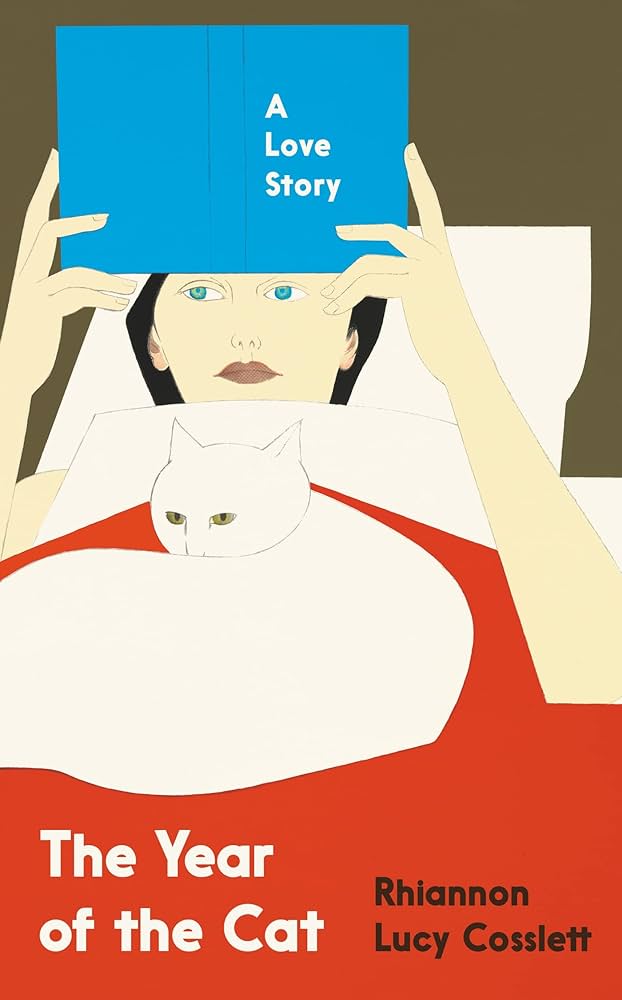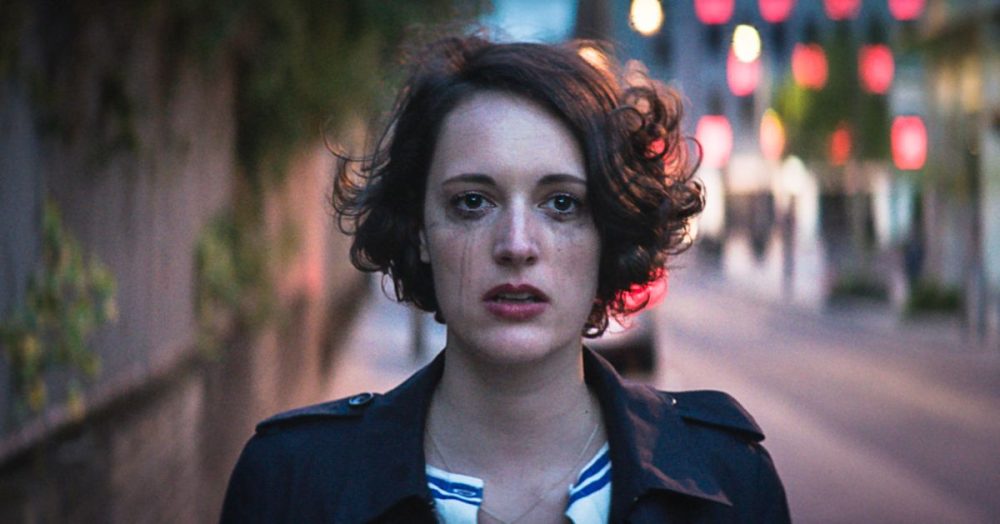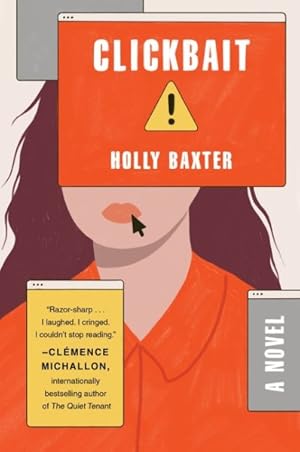Men on the verge have dominated literature for decades. Raskalnikov wandered the streets of Moscow, driven to murder by philosophy; Holden Caulfield let us know we’re all goddamn phonies. Gatsby held parties as an act of passive aggression; Humbert Humbert absconded with a young teen. All the while, women protagonists were either absent entirely or supposed to remain relatable. Literature has featured female characters who were “on the verge”—but almost all of them have been driven to insanity because of a man, or serve to illuminate something about that man’s past (see: Bertha Rochester or Miss Havisham), or are just so crazy that it’s sexy (step right up, Steinbeck’s Cathy Ames).
Truly three-dimensional female protagonists who are working through their own issues were rare until a couple of decades ago, bar a handful of examples. And when they did pop up in literature, their creators were often dismissed as hysterics with little talent. Sylvia Plath was just a woman with a tragic life who happened to write things down, male critics argued; Nora Ephron’s real-life divorce was the main event, rather than her writing skill. In other words, writing about a “woman on the verge” comes with a lot of sexist baggage.
The protagonist of my debut novel, Clickbait, is a woman named Natasha with some serious issues. Her main issue is that she just became the news—a very bad thing for a journalist. She flagrantly violated her newspaper’s ethical standards, and now, disgraced, demoted and divorced, she spends her days in a clickbait factory tabloid job where she writes stories like ‘Does Elon Musk have a Kardashian love child??’ and ‘Bridezilla sparks debate with pronouns’. When an old flame moves into her spare room, she becomes dangerously obsessed with him—and her media life and her personal life threaten to collide in a very public way.
Natasha is the very definition of a “woman on the verge”. She’s moody, warped and maladaptive; she ping-pongs between daydreaming about having a readymade husband and baby and living out life as a tradwife, and committing to a “radical childfree” lifestyle and living in the woods. She is working through who she is when men aren’t looking. Like the protagonists of some of my favorite novels from the past couple of years, she isn’t likable—and she certainly isn’t demure.
I think there’s a very clear reason why both readers and writers are leaning more toward “unlikeable” protagonists: the news cycle of the past five years has made even the most stable of us feel like packing up and moving into the middle of the woods at one point or another. The very proliferation of the meme-phrase “in this economy?!” is proof that we’ve all been dragged into the meta-analysis of society’s collapse.
Clickbait is set in a bottom-feeder newsroom where reporters aggregate and spin stories about rape, murder and discount cookies, day after day. The psychic toll this kind of job takes on journalists is very rarely spoken about—and it’s something I wanted to explore through my characterization of Natasha.
I have a few recommendations for readers who are looking for company in the wallowing pit—because you just can’t be expected to Live, Laugh, Love through 2024.
Worry by Alexandra Tanner
Tanner’s book about two sisters trying to make it work in New York City while they juggle awful jobs, a new dog named Amy Klobuchar, and parents who want them to get Botox is one of the funniest things I’ve ever read. It’s compulsively readable from the first sentence and it pulls no punches in its wryly humorous description of modern life. Tanner really makes us examine our responses to people and situations, and her characters’ reactions feel real: as her protagonist half-heartedly responds to dick pics and spends her time compulsively scrolling through the social media posts of Utah’s most obnoxious tradwives, I recognized my own most masochistic defense mechanisms.
It’s testament to Tanner’s talent that I read this compulsively in the 4am half-light while breastfeeding my newborn son. I was pretty much unable to concentrate on anything at that moment in time beyond “Am I The Asshole” posts on Reddit, yet this one drew me in and demanded I pay attention.
The New Me by Halle Butler
The New Me is a dark novel with a wink-wink-nudge-nudge light-sounding title. It follows Millie, a young woman whose anxieties and depressive tendencies interfere with her ability to pretty much bond with anyone or anything, as she navigates a job she hates yet can’t help wanting to succeed in.
The petty characters Butler writes feel familiar, and even though most of their behaviors and impulses are loathsome, you can often understand exactly how they got there. Millie refuses to feel grateful for her own fairly privileged position—the financial support of her parents, for instance—and she has a serious superiority complex about the people who she encounters at her awful job. She’s someone you want to pick up and shake, but she’s also someone you end up feeling sorry for, despite yourself. The gap between what she expected her life to look like and what it looks like for the duration of the novel is painful, and we’ve all felt a semblance of that pain.
Queenie by Candice Carty-Williams
Queenie isn’t just a deep-dive into one woman’s psychological tics but also a beautiful portrait of London in all its diversity and its downfalls. Carty-Williams, in a very Zadie Smith-esque way, is able to draw attention to a plethora of social issues—gentrification, racism, misogyny, the cruelties of capitalism and the generation effects of immigration—within a few short scenes (the first chapter somehow manages to draw attention to every one of these, while remaining readable and at times heartrending).
Queenie is a protagonist who makes a lot of bad decisions, but you keep rooting for her. Carty-Williams does a good job of showing how unfairly society reacts to her even as she demands Queenie take responsibility for her own “stuff” (as Queenie continually calls it). And she also does a good job of portraying how no one truly comes back together on their own—Queenie’s imperfectly perfect support system often takes center-stage, too.
Beautiful World, Where Are You by Sally Rooney
Beautiful World, Where Are You is probably the most divisive of Rooney’s books—where the characters of Conversations with Friends and Normal People, with their snappy dialogue and their tortured inner worlds, were relatable to many, BWWAY’s Alice feels much closer to Rooney herself.
The action is interspersed with long emails between the two main characters as they discuss philosophy and classism in and around discussing what’s happened recently in their lives. Alice gets involved with a highly suspect man named Felix and moves herself out to the countryside after having a breakdown following the massive success of her novel (I told you it felt personal). Her best friend Eileen, meanwhile, is in an on again/off again relationship with the much more likable Simon.
Like all Rooney books, this one really hinges on the dialogue and the chemistry between the characters. I liked that she didn’t shy away from Alice’s struggles, even if most of us would see them as “first world problems”, and that she portrayed her as a little unstable, a little ungrateful, but also somehow incredibly relatable.
Death Valley by Melissa Broder
I’m obsessed with pretty much everything Melissa Broder does: as soon as I finished The Pisces (“that fish-sex book,” as my husband calls it), I ordered Milk Fed, then read Broder’s online work, then preordered Death Valley.
Death Valley is without a doubt her weirdest book yet—and that’s saying something for an author who wrote convincingly about sex with a merman. A writer goes out to the desert to find inspiration for her latest novel, while her father is dying in the hospital and her husband is incapacitated with an unknown illness. She goes out for a hike one day and gets lost—and a whole bunch of weird stuff happens from there.
What Broder does so well is portray completely surreal, bizarre situations that somehow get right to the center of human experience. At one point in this novel, her protagonist is inside a cactus, being bottle-fed soda by the implied ghost of her father. If anyone else tried this scene, it wouldn’t work, and that’s putting it lightly—but Broder manages to make it tender, emotional and universal-feeling.
My Sister, The Serial Killer by Oyinkan Braithwaite
This is a tale of two women who give in to their darkest impulses, hilariously and horrifyingly yet somehow believably. It often gave me Margaret Atwood vibes.
I love a witty novel about women getting empowered in the absolute worst way and this ticks all those boxes. But even more than the fast-paced narrative, what I enjoyed was the ingenious way the author goes about her characterization. She introduces us to two people who seem like they couldn’t be more different—then sets about proving how they’re actually cut from the same cloth.
Vladimir by Julia May Jonas
Vladimir is a novel that deeply creeped me out and stayed with me long after I’d finished it. A literature professor whose husband has been involved in a sexual scandal continues to work on campus, trying to keep her head down—until she herself becomes obsessed with a new, young hire. One second, she’s simply thinking about this man a lot, and inviting him over for a swim in her pool; the next, she’s living out the most disturbing and predatory kidnapping fantasies.
Jonas manages, in a very Nabokov-esque way, to make us feel like accomplices to her protagonist’s twisted behavior. It’s a dark novel that explores the complexity of female desire and how it can get warped, and it also makes a middle-aged woman with a grown daughter the focal point, which is especially unusual.
Really Good, Actually by Monica Heisey
The protagonist of Heisey’s Really Good, Actually is, like the author, a young divorcee with a biting wit and an unapologetic way of listing her own mistakes and demerits. If you’re a fan of dark humor, you’ll love everything from the sardonic writing to the sarcastic title, and the cover art to the final page, which is just as beautifully crafted as the first one (seriously, take a peek and it will make you laugh out loud. This is a novel that starts with a bang).
Maggie is newly divorced, broke and trying to remake her life in Toronto after it all imploded at the age of 29. And as someone who constantly uses humor as a defense mechanism, I really appreciated the way in which she managed to tell a quite sad story through that lens. Just because Maggie tells a lot of jokes doesn’t mean she isn’t suffering. In fact, the jokes often amp up during her most vulnerable moments. I found it a touching portrayal of a woman trying to “just get on with it” and “keep smiling through it all” when the worst thing she could’ve imagined has just happened to her. You can easily see how Heisey found success in the writers’ room for Schitt’s Creek.
The Quiet Tenant by Clemence Michallon
Michallon tells the story of a serial killer through the multiple perspectives of the women who surround him: the bartender who has a crush on him, the teenage daughter who still lives with him—and the one woman he didn’t kill, who is a prisoner in his home.
What I loved about Michallon’s novel wasn’t just the incredibly twisty and well-paced plot, but the fact that it put these women’s emotional lives front and center. Instead of delving into the mind of the male killer, we get to watch what happens when his daughter meets his captive, and watch a burgeoning relationship. Instead of hearing how he wants to stalk his next victim, we see that young woman almost falling into his trap.
It was the details that really made this one for me, like when May finally gets to lie down on a bed after years of being held captive in a shed and finds it unbearably soft and has to move onto the floor; or how her teeth physically hurt after she eats sweet food after so long; or how she pines for the mundane, like a jog along the side of a road. In the most out-there situations, Michallon writes with searing emotional honesty.

The Year of the Cat by Rhiannon Lucy Cosslett
This is a memoir that is ostensibly about Cosslett’s first year living with a small, demanding, endlessly entertaining cat called Mackerel during the pandemic. But it’s also about her family history, the disabled brother she grew up alongside, her relationship with her husband in lockdown, and their back-and-forth about whether they’re going to finally take the leap and have a baby.
Fans of Cosslett’s Guardian columns will know that she manages to write about deeply emotional and sometimes truly devastating subjects with humor and honesty (her Republic of Parenthood series got me through the first year of my son’s life). This book is an extension of some of the issues she’s touched on before, with lots of asides for the feline lovers among us. It’s tender, it’s witty and it speaks to what it means to be a thirtysomething millennial woman today, in a generation where we have fewer financial opportunities than our parents but twice as many expectations foisted upon us. I go back to it often.
Read the original article here

